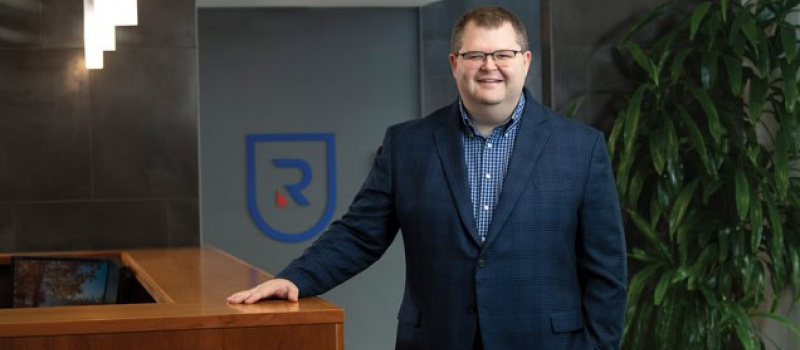Taking the Pain Out of Business Partnerships
Going into business with friends or family can be a good idea. After all, you like these people. You think alike. You know how to create your products and serve your customers. What could go wrong?
Forming a business partnership can lead to what attorney Alex Platte calls “pain points.” Those are where he and other attorneys who specialize in business law can be helpful.
“We can help you focus on running your business so that if things aren’t going well or they are different from what you expected, your planning pays off.”
Platte, who is a partner with Fort Wayne’s Rothberg Law Firm, focuses on those moments so business owners don’t have to.
“I can help a client think about different scenarios where business partners wish they had planned ahead.” If business partners consider how they want their business legally structured, whether it’s a corporation, an LLC or a partnership, that planning can allow them to address possible situations before there is a crisis.
One is the question of who is actually in charge of the day-to-day operation of the business. “People might believe they have it all figured out…who does what and it’s all going along swimmingly.” However, if a business is structured so that it’s a completely 50/50 arrangement, “it can be a recipe for disaster,” he adds.
“It often makes sense to appoint someone as the day-to-day person in charge…who has the formal authority to act on behalf of the company, who takes the lead on finances, whatever is appropriate.”
Decision-making is another area that should be determined ahead of time when things are going well.
Certain issues, such as approval of contracts or purchases of a certain amount, may need majority approval if there are more than two partners, he says.
Other issues, such as taking on another partner or member, selling the company or its assets, or merging with another company, should be considered ahead of time and might require a unanimous vote.
Platte noted unfortunate situations like the death, divorce or bankruptcy of one of the partners in a business or being sued by a creditor can change the dynamic of a well-run business.
In the case of the death of a partner “perhaps the surviving business partners would like to buy out the heirs instead of dealing with a new person in the partnership.”
Platte says planning for this with life insurance, and a contract such as an operating agreement for a Limited Liability Company (LLC), can make handling the situation simpler. He added that an LLC is a common choice of corporate entity because of its flexibility in the way the business is structured legally, including how it is taxed.
If one of the partners divorces a spouse, Platte says, a divorce judge could make an award that might benefit the spouse but could throw the business into turmoil by making the partner’s ex-spouse an owner of the business. If the terms for buying out a partner in the business who is going through divorce are spelled out ahead of time, the business can move ahead without time spent in a legal struggle.
The issue of business succession may seem only a distant concern when starting a business but having someone walk through the process and considerations is most helpful well before it’s a necessity. “I will ask partners ‘Are you all comfortable with a partner passing shares to relatives? Now you’re in business with whoever owns those shares.’”
Platte says an operating agreement can clarify the way succession is handled and if the remaining partners have the right of first refusal in the case of passing shares of the business to others. Creating an agreement that restricts or prohibits transfer of shares can protect the remaining shareholders.
Finally, there is the important issue of placing a monetary value on the company in case a member buyout is needed. “It’s best to decide how you will do that up front, whether you will agree on it annually, or have a formal appraisal done. That discussion can eliminate the need for a court to decide the company’s value at some point.”
Platte, who is a graduate of South Side High School, and Indiana University in Bloomington for both undergraduate and law school, says he was attracted to business law after working as a software engineer for Discover Card.
“I believe that working with regular people who are building businesses can make a positive influence on their lives. And in a small way, I’m helping to build the Fort Wayne community.”
